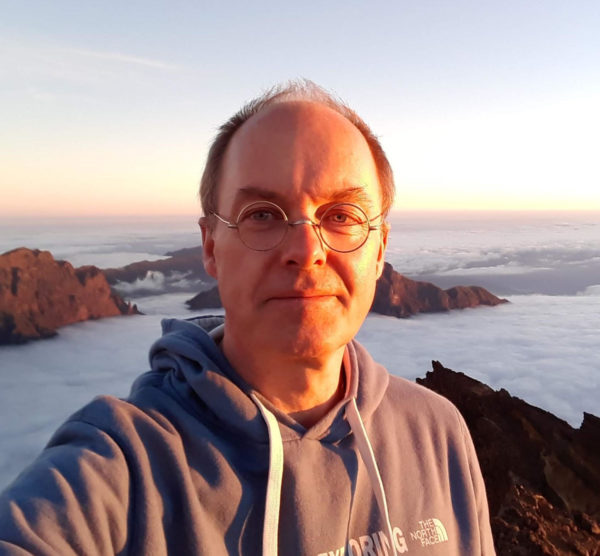What is your role in the DESI project?
I’m involved in the Milky Way Survey, where I contribute to the target selection and the definition of the Backup program, currently lead the MWS Visual Inspection efforts, and help out as a DESI observer. One of my roles was to work on the target selection of white dwarfs, which DESI is observing as secondary flux standards (white dwarfs are usually very blue, and have relatively simple and well understood spectra. Well, most of them). Within DESI, I’m probably the person with the lowest redshift: my science interests are stars in the solar neighborhood, in particular within 100pc.
Where were you born? Where do you live now? What are the interesting places that standout that your work has taken you to?
I was born and grew up in Berlin. One of the first questions I get asked is “which part”: West Berlin. During the cold war, it was pretty much the same as living on an island. Now I’m settled in the Midlands in the UK, which are very beautiful. That is, once the Sun comes out. I love being at observatories. All of them. Each and every one of them is very different: The views over the Arizona desert from Kitt Peak are just stunning (and their food is very nice). Paranal is the true definition of desert, and the platform with four VLTs, one of them firing a quad AO laser, seems straight out of a science fiction movie. La Palma has some of the most varied landscapes (words can’t capture what it feels being on the rim of the Caldera). And being chased by wild boars in a moonless night at Calar Alto stands out as a memory.
What would you say is the most interesting or exciting thing about your job?
Three very different aspects come to my mind. I really enjoy working together with so many amazing people from all over the world and of all ages, that have such an enormous range of skills and knowledge. Thanks to them, I learn something new every day. Then there is the huge satisfaction of answering a scientific question, pushing the boundary of our knowledge just that one step further. And finally, the day-to-day work is just great fun. I’m a data junkie, and with the rapidly growing number of ground and space-based photometric and spectroscopic surveys, there is no end to discovering new exciting things out there in the Universe.
Any advice for aspiring scientists?
Find out what you are good at, sharpen those skills, and then make good and constant use of them. Just like you would do when learning to play an instrument, or practice some sport. Keep questioning the things you think you know. Read a lot of papers and listen to a lot of talks spanning a wide range of topics. Look out for that odd small inconsistency in your data (or equations), turn it into a question, and then try to find an answer.
Finally, what do you do for fun?
Hey, astronomy is a lot of fun. But so is cycling, climbing, cooking, traveling, and spending time with friends and family.

